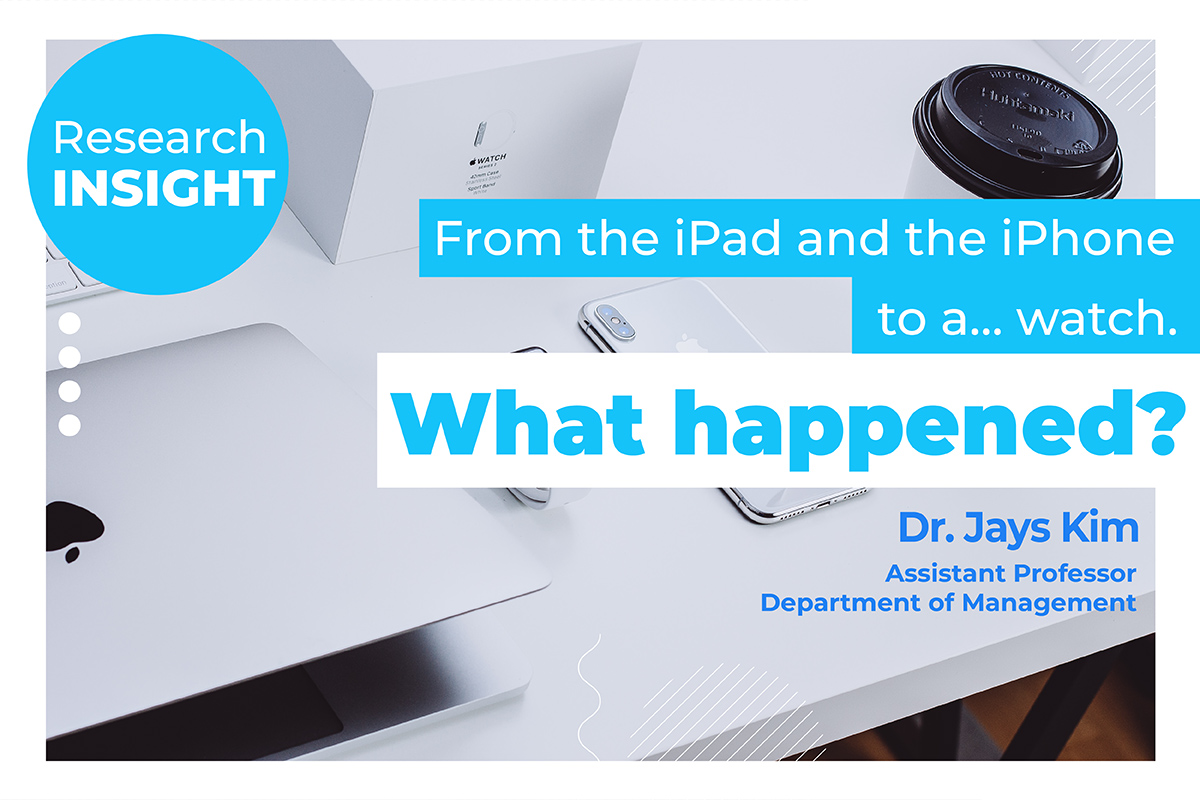School of business - research
From the iPad and the iPhone to a… watch. What happened?
By Dr. Jays Kim


The death of Steve Jobs and his replacement by supply-chain guru Tim Cook coincides with a dearth of new game-changing product launch by Apple. Could it be that the innovative spirit of a company dies with its founder as it transitions towards a more institutional style of management?
After all, many tech firms follow a similar cycle. Following a period of hectic growth under a driven founding CEO, they eventually reach a size considered too large for the skills and managerial ability of the founder, who is then replaced by a professional CEO. While management literature tends to confirm that larger firms benefit from a more traditional approach to management, Dr. Jongsoo Kim from the Department of Management and fellow researchers explore how a sudden, unforeseen and unplanned change of management (i.e. the sudden death of CEOs, both founders and professionals) affects the innovative ability of tech companies.
As the authors anticipated, the sudden replacement of a founder CEO by a professional manager has a dramatic impact on innovation: tech firms that suffered the sudden demise of a founder-CEO and its replacement by a professional CEO experienced an average decline of 43.8% in citation-weighted patent count, a measure of innovation.
Interestingly, this drop in innovation occurred despite the fact that investment in Research & Development (R&D) activities remained stable following this sudden change in management. As companies managed by founder CEOs generated both the largest number of “hits” and “flops”, the study concludes that founder CEOs are naturally comfortable investing in risky projects (the “R” in R&D), while professional CEOs tend to favor safer development activities.
The sudden death of founder-CEOs also impacts the innovative potential of tech firms in a different way, as it often triggers the exodus of creative “employee-inventors”. Many employee-inventors, likely to having been inspired by the visionary mission of founder CEOs, choose to leave for more innovative firms rather than stay put and implement the incremental innovation agenda of professional CEOs.
As tech firms grapple with this problem, you should also be mindful of this dynamic when considering a new job, as Tim Cook’s company is not the same as Steve Jobs’ Apple!
Reference:
Lee, J., Kim, J. J., & Bae, J. (2020). Founder CEOs and innovation: Evidence from CEO sudden deaths in public firms. Research Policy, 49(1).